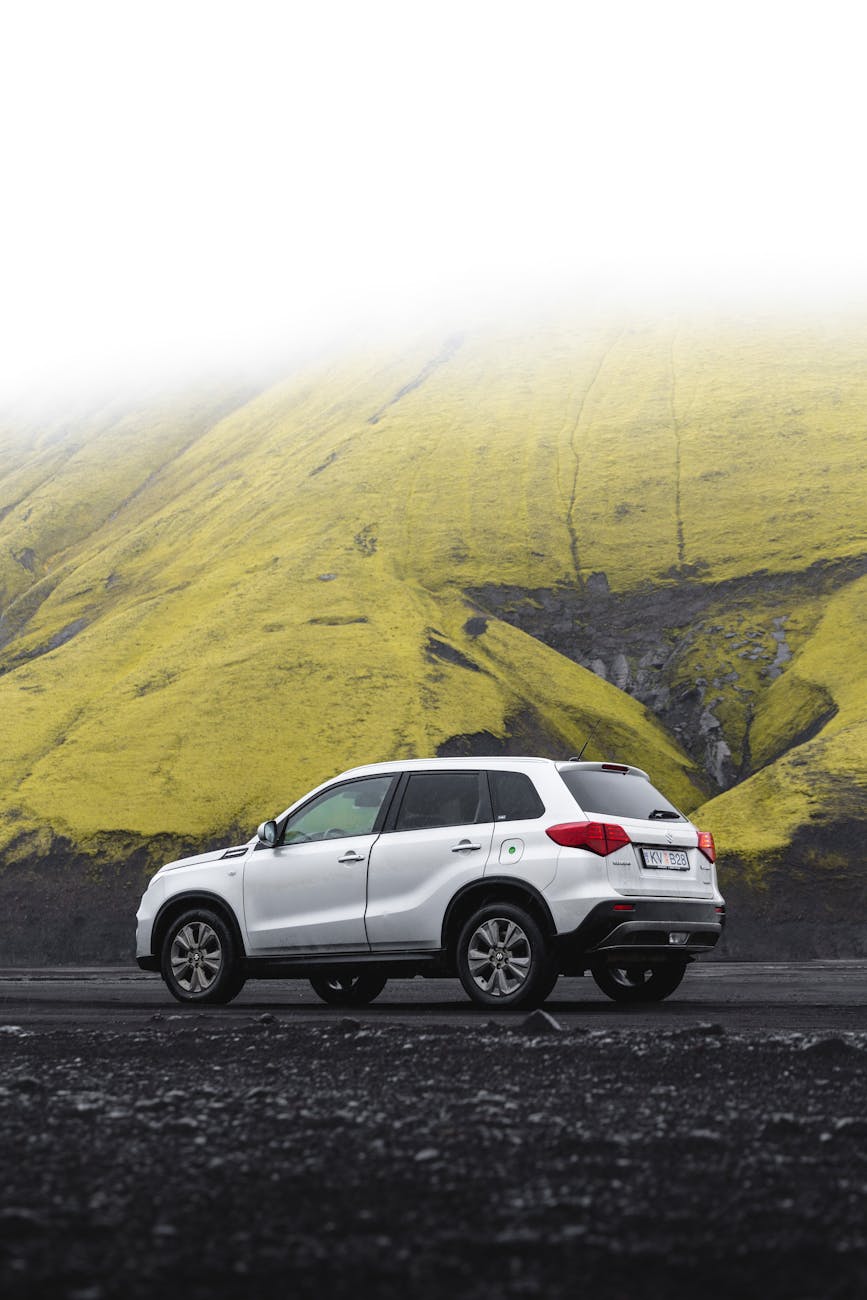Understanding PCP Agreements
What is a PCP Agreement?
A Personal Contract Purchase (PCP) is a type of car finance that allows you to drive a car with lower monthly payments compared to other financing options. In a PCP agreement, you pay a deposit and make monthly payments over a fixed term, usually between 2 to 4 years. At the end of the term, you have several options: you can return the car, pay a balloon payment to purchase the vehicle, or trade it in for a new one (What Car?).
Benefits of PCP Agreements
PCP agreements offer several benefits that make them an attractive option for many individuals:
Lower Monthly Payments: Compared to other financing options, PCP agreements generally have lower monthly payments because you are only paying for the car’s depreciation during the loan term rather than its full value.
Flexibility at End of Term: At the end of the PCP agreement, you have the flexibility to choose whether to return the car, buy it outright, or trade it in for a new one (Auto Trader).
Reduced Financial Commitment: Since you don’t have to commit to purchasing the car from the start, a PCP agreement can be a good option if you prefer to change cars frequently.
Responsibilities in a PCP Agreement
While PCP agreements offer flexibility and lower monthly payments, there are certain responsibilities you must adhere to:
Mileage Limits: PCP agreements usually come with mileage limits, and exceeding these limits can result in additional charges (Auto Trader).
Maintenance and Condition: You are responsible for maintaining the car in good condition and within fair wear and tear guidelines. Failure to do so can lead to additional fees at the end of the term.
Balloon Payment: If you choose to buy the car at the end of the term, you will need to make a balloon payment, also known as the Guaranteed Minimum Future Value (GMFV), which is predetermined at the start of the agreement (Rocket Lawyer).
| Key Responsibility | Details |
|---|---|
| Mileage Limits | Specified in the PCP agreement; exceeding can incur additional charges |
| Car Maintenance | Must be kept in good condition; fair wear and tear guidelines apply |
| Balloon Payment | Required to purchase the car at the end of the term if you choose to buy it |
Understanding these responsibilities is crucial to avoid unexpected costs and to make the most of your PCP car finance agreement. For more information on how PCP compares to other financing options, visit our pcp vs hp guide.
Options at the End of a PCP Agreement
At the end of a Personal Contract Purchase (PCP) agreement, you have three primary options to consider. These options include returning the car, buying the vehicle, or trading in or part-exchanging the car. Each option has its own set of benefits and considerations.
Returning the Car
Returning the car to the lender is a straightforward option at the end of a PCP agreement. If you have been a responsible driver and made all payments as agreed, you can simply return the car. This option effectively ends the car rental term with no ownership of the vehicle (Carplus).
However, it’s important to be aware of any potential fees or charges that may apply. These can include excess mileage charges or costs for any wear and tear beyond the acceptable limits. For more details on the lease return process, visit our page on pcp car leasing explained.
Buying the Vehicle
If you decide to buy the car at the end of a PCP agreement, you will need to cover the Guaranteed Future Value (GFV), also known as the balloon payment. This payment transfers ownership of the car from the lender to you (Carplus).
You can choose to pay the balloon payment in full or refinance it through another financing option, such as a Hire Purchase (HP) contract. This allows you to spread the cost over a set period, making it more manageable. For more information on financing options, check out our article on pcp car finance explained.
Trading in or Part-Exchanging
Trading in or part-exchanging the car for a new one is another viable option at the end of a PCP agreement. This allows for a smooth transition to a new vehicle. If you have positive equity in the car (meaning the car is worth more than the GFV), you can use this equity towards your new car (Carplus).
If you have negative equity (meaning the car is worth less than the GFV), you will need to settle this amount before proceeding with the trade-in. To explore the best deals for your next vehicle, visit our page on pcp car deals.
| Option | Description | Considerations |
|---|---|---|
| Returning the Car | End the car rental term by returning the car to the lender. | Potential fees for excess mileage and wear and tear. |
| Buying the Vehicle | Pay the GFV to own the car. Option to refinance balloon payment. | Requires a lump sum payment or new financing. |
| Trading in or Part-Exchanging | Use positive equity towards a new car. Settle negative equity before trade-in. | Smooth transition to a new vehicle. |
Understanding your options at the end of a PCP agreement can help you make the best decision based on your financial situation and future needs. For a detailed comparison of PCP and HP agreements, visit our article on pcp vs hp.
Comparing PCP to HP
When navigating the world of car finance, understanding the differences between Personal Contract Purchase (PCP) and Hire Purchase (HP) agreements is essential. Both have unique features that cater to different needs and preferences.
Differences in Payment Structures
PCP agreements involve a series of smaller monthly payments, with a larger payment known as a balloon payment or the minimum guaranteed future value (MGFV) at the end of the term. The monthly payments are calculated based on the depreciation of the car over the term of the agreement, plus any interest and fees (Rocket Lawyer).
In contrast, HP agreements involve paying off the full value of the car over the term of the loan, usually resulting in higher monthly payments but no large final payment. This can make HP cheaper over the lifetime of the loan as the amount borrowed is paid off more quickly without a significant balloon payment at the end.
| Feature | PCP | HP |
|---|---|---|
| Deposit | Usually around 10% of the car’s price (Rocket Lawyer) | Often required, amount varies |
| Monthly Payments | Lower, based on car depreciation | Higher, based on full car value |
| Final Payment | Large balloon payment (MGFV) | None |
| Overall Cost | Potentially higher due to final payment | Potentially cheaper over loan term |
Ownership Considerations
In a PCP agreement, you do not own the car unless you make the final balloon payment. Until then, the car remains the property of the finance company. This gives you the flexibility to decide whether to keep the car, return it, or trade it in at the end of the term.
With an HP agreement, ownership of the car is transferred to you once the final payment is made. This means you are gradually building equity in the vehicle over the term of the loan.
For those looking for more flexibility, a PCP might be more appealing. However, if outright ownership is the goal, HP could be the better option. For further insights, you can visit our page on PCP vs HP.
Mileage Limits and Penalties
One of the significant differences between PCP and HP agreements is the presence of mileage limits. PCP agreements typically include a mileage limit, and exceeding this limit can lead to penalty charges. This is because the residual value of the car at the end of the term is based on the expected mileage. Exceeding the limit can decrease the car’s value, hence the penalties.
HP agreements do not have mileage limits, as you are working towards full ownership of the car. This can be beneficial for those who drive a lot and want to avoid extra charges.
| Feature | PCP | HP |
|---|---|---|
| Mileage Limits | Yes, penalties for exceeding limit (What Car?) | No limits |
| Ownership | Optional at end of term | Transferred after final payment |
Understanding these key differences can help you make an informed decision about which type of agreement is best suited for your needs. For more detailed information, explore our comprehensive guides on PCP car finance, PCP car loan, and PCP car lease.
End-of-Lease Considerations
When your PCP agreement is approaching its end, there are several crucial factors to consider. This section will guide you through the lease return process, wear and tear assessment, and potential fees and charges.
Lease Return Process
At the end of your PCP agreement, you have several options. You can return the car and walk away, buy the leased vehicle, lease another car, or extend the lease if you need more time to find a replacement (Kelley Blue Book).
If you choose to return the car, follow these steps:
- Schedule an Inspection: Contact your dealer to arrange a pre-return inspection. This helps identify any issues that need addressing before the official return.
- Clean the Car: Ensure the vehicle is clean inside and out.
- Remove Personal Items: Take out all personal belongings.
- Check Documentation: Have all necessary documents ready, including the service history and any manuals.
For more details on the return process, visit our page on pcp car lease explained.
Wear and Tear Assessment
Inspectors will assess the wear and tear on the vehicle. Each manufacturer sets guidelines for what constitutes acceptable wear and tear. Generally, dealers waive the first £500 of wear, but charges may apply for items such as dented fenders, cracked windshields, and bald tires (Kelley Blue Book).
| Item | Potential Charges |
|---|---|
| Dented Fenders | £100 – £300 |
| Cracked Windshields | £150 – £400 |
| Bald Tires | £50 – £200 per tire |
To avoid unexpected costs, ensure the car is in good condition before the return inspection.
Potential Fees and Charges
At the end of your PCP agreement, you may encounter several fees and charges:
- Mileage Overages: Exceeding the pre-determined mileage cap typically results in a charge of around 20 to 30 pence per mile over the limit.
- Disposition Fee: Dealers usually impose a disposition fee of about £350 for lease termination if you are not buying the vehicle. This fee helps offset the costs of putting the vehicle back into inventory.
- Excessive Wear and Tear: Charges may apply for excessive wear or damage as assessed during the inspection.
| Fee Type | Cost |
|---|---|
| Mileage Overages | £0.20 – £0.30 per mile |
| Disposition Fee | £350 |
| Excessive Wear and Tear | £50 – £500 |
Understanding these potential fees can help you budget accordingly and avoid surprises at the end of your lease. For more information on managing these costs, visit our page on pcp car finance offers.
By being aware of these end-of-lease considerations, you can smoothly navigate the end of your PCP agreement and make an informed decision about your next steps.


